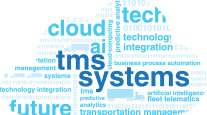Senior Reporter
Republicans Lament Absence of Trucking Policy in Autonomous Bill

WASHINGTON — Key Republicans on the Senate Commerce Committee, including the panel’s chairman, expressed concern over the absence of trucking policy provisions in legislation on autonomous vehicles awaiting a vote in the chamber.

Inhofe
Sens. Todd Young of Indiana and James Inhofe of Oklahoma, both Republicans, argued the lack of inclusion of trucks in the committee-passed legislation failed to provide a full framework of self-driving vehicle guidelines.

Young
“I still lament … that we have limited this to passenger vehicles and not incorporated trucks into this legislation,” Young said at a Jan. 24 hearing. “I think we can save a lot of lives and improve a lot of lives if we were to broaden the scope of it.”
The Commerce panel met at the Washington convention center to kick off the annual Washington Auto Show. The legislation is expected to gain floor time as soon as this spring. The bill’s backers say the technology and automotive sectors would benefit from congressional directives on autonomous cars.
Avent w/Florida Polytechnic University: Autonomous technology capable of helping trucking industry tremendously #MobilityTalks2018 — Eugene Mulero (@eugenemulero) January 24, 2018
Commerce Committee Chairman John Thune (R-S.D.) said he shared Young’s sentiment. Speaking to reporters after the hearing, however, Thune expressed pessimism over the potential of broadening the scope of the bill during upcoming floor negotiations.
“I don’t know that we get that done right now,” Thune told reporters. “I think there are enough objections; it’s an issue that gets Democrats fairly worked up because the labor unions right now are very opposed to it.”
But at some point, he added, the matter must be addressed. “Eventually [trucking] is a part of that overall equation,” the chairman said. “You can’t have, really, two safety standards out there on the highways. So eventually trucks have to be dealt with.”
Mike Mansuetti, president, Robert Bosch North America, Robert Bosch LLC: As autonomous technology advances, industry will ensure there are systems that protect consumers’ data #MobilityTalks2018 — Eugene Mulero (@eugenemulero) January 24, 2018
Meanwhile, Michigan Democratic Sen. Gary Peters, a bill co-sponsor with Thune, contended the legislation in the near term should advance without addressing trucking policy, primarily because of safety and employment concerns.
“We’ve put so much effort in the bill focusing on automobiles, and that’s been the major argument, that to then add trucks adds a whole other layer of discussion, a whole other layer of thinking related to … safety issues that are different with an 80,000 pound truck than it is with an automobile,” Peters told reporters. “The key is, and I think we heard that from our panelists, all of them today, as well, is that the quicker we get this done the better, because the faster we get the technology developed, [then] the faster we start saving, literally, thousands of lives on our highways.”
The Senate bill would seek to pave the way to allow self-driving cars on roadways, clarify oversight of the technology and require new federal safety standards. The House passed similar legislation last year.
Addressing the senators at the hearing, Randy Avent, president of Florida Polytechnic University, said autonomous vehicle technology is capable of helping to improve safety throughout the trucking industry.
Manufacturers are proceeding with a lineup of trucks capable of operating autonomously, and industry executives have been urging senators to add trucks in the legislation. American Trucking Associations Executive Vice President of Advocacy Bill Sullivan recently told Transport Topics the Senate floor negotiations present an opportunity to amend the legislation.
“I believe that the conditions are going to be better as we come into this year, partly because as the … Senate Commerce Committee bill has moved to the floor, it’s slowed down. There’s not unanimity and there is recognition, not only of our issue about commercial vehicles, but also of concerns that some safety advocates have about other specific things,” Sullivan said. “This debate isn’t closed … We have an opportunity to dig deeper in terms of policymaking on automated vehicles for commercial vehicles.”




